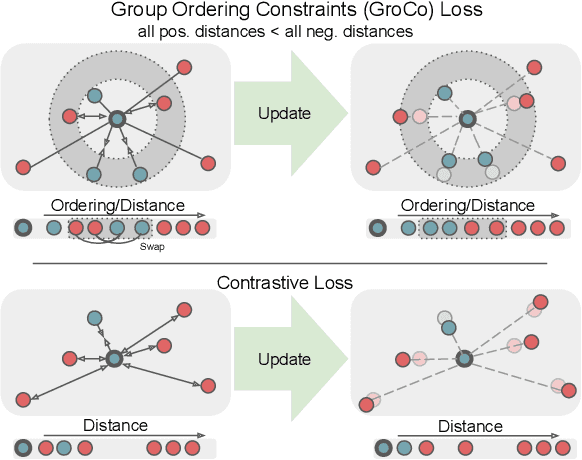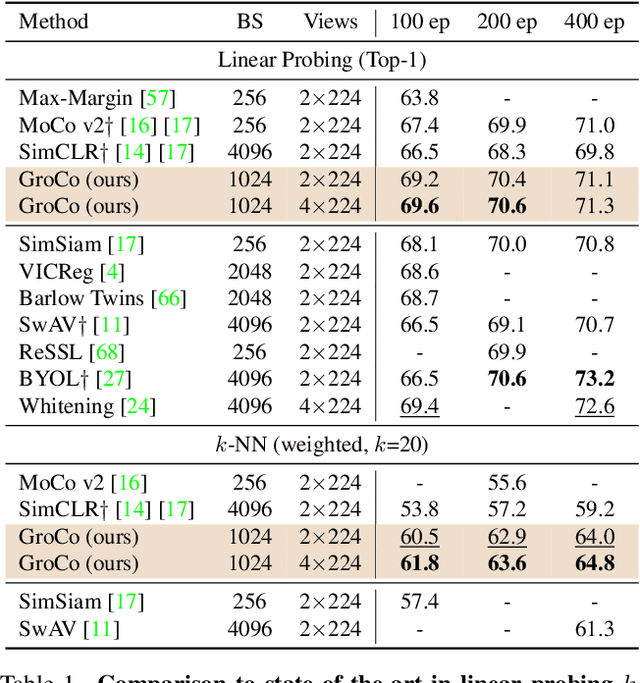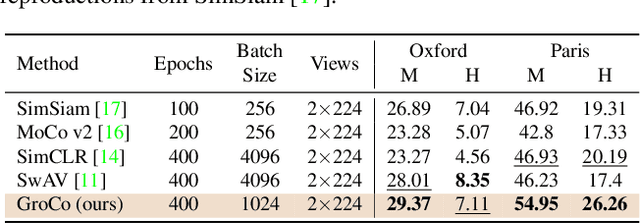Learning by Sorting: Self-supervised Learning with Group Ordering Constraints
Paper and Code
Jan 05, 2023



Contrastive learning has become a prominent ingredient in learning representations from unlabeled data. However, existing methods primarily consider pairwise relations. This paper proposes a new approach towards self-supervised contrastive learning based on Group Ordering Constraints (GroCo). The GroCo loss leverages the idea of comparing groups of positive and negative images instead of pairs of images. Building on the recent success of differentiable sorting algorithms, group ordering constraints enforce that the distances of all positive samples (a positive group) are smaller than the distances of all negative images (a negative group); thus, enforcing positive samples to gather around an anchor. This leads to a more holistic optimization of the local neighborhoods. We evaluate the proposed setting on a suite of competitive self-supervised learning benchmarks and show that our method is not only competitive to current methods in the case of linear probing but also leads to higher consistency in local representations, as can be seen from a significantly improved k-NN performance across all benchmarks.
 Add to Chrome
Add to Chrome Add to Firefox
Add to Firefox Add to Edge
Add to Edge